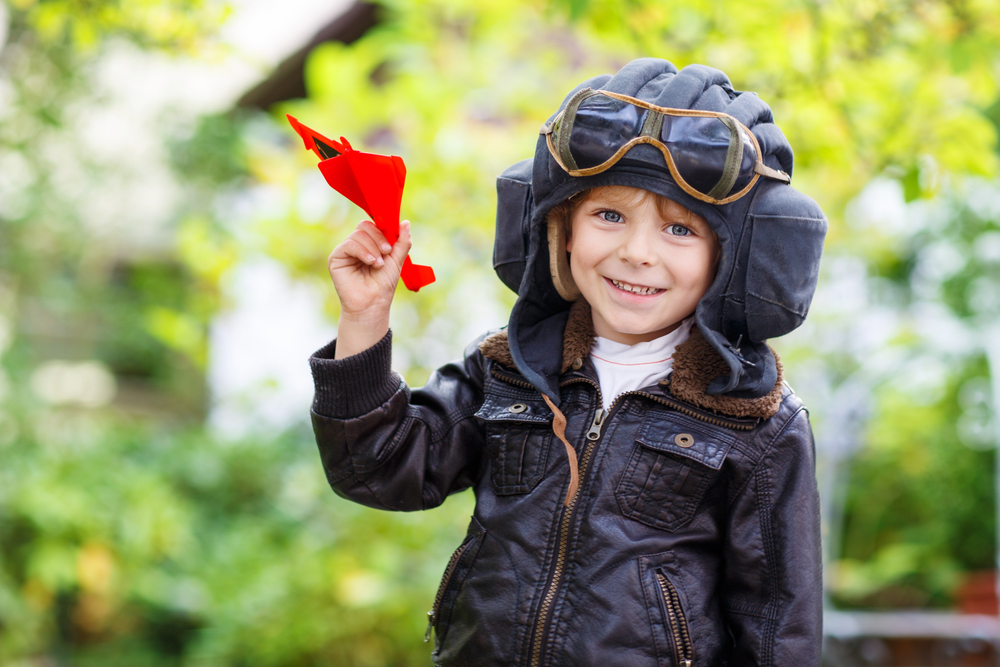What makes successful people truly special is not their ability to dream, but their ability to act on their dreams.
Whether your idol is Mahatma Ghandi, Steve Jobs or Elon Musk, he or she probably had some pretty big dreams. Although these dreams may be vastly different from one another, their origins are often quite similar. In nearly all the cases that I’ve observed, when a person is dissatisfied with the current state of affairs, he or she envisions a world where certain conditions are changed for the better. Just like that, a dream has been formed. It is practically human nature for us to dream about something.
For my neighbor’s four-year-old daughter, the dream is to build a doll house for her Barbie doll. For the new college grad, moving to the Silicon Valley, it might be to design a flying car. The possibilities are endless. However, what makes successful people truly special is not their ability to dream, but their ability to act on their dreams. If Ghandi didn’t actively lead a civil rights movement, India would not have won its independence in 1947. If Jobs didn’t flagship Apple’s creation of the iPhone, how we communicate today may be very different. Heck, if Novak Djokovic simply dreamt about being the best tennis player in the world, and didn’t work at it”¦ well, he wouldn’t be Novak Djokovic.
Be a Doer
When my paternal grandfather passed away from prostate cancer, it was the first time I ever acted on my aspirations. As a wide-eyed freshman in highschool, I always flirted with the idea of making a contribution to science, however, to actually try to make a contribution as a teenager seemed to be an impossible task. Only when my grandfather passed away, did I feel a strong enough urge to actively contribute to cancer-related scientific research. I read all the peer-reviewed, cancer related papers I could get my hands on. With my limited knowledge in biology, most of the literature I was reading was difficult to understand, but I kept going. After months of building my understanding of the disease, I contacted professors all across the United States for a chance to make a scientific contribution to what we know about cancer. As I was very young, I didn’t get many opportunities. However, I remained persistent and believed in the numbers game. As the academic year was drawing to a close, and after nearly a hundred emails later, I was admitted to a Systems Biology lab at the Mount Sinai School of Medicine where I would contribute to the design and implementation of my very own research project.
Tomorrow is Only a Hope
When conducting bioinformatics research for the first time, I realized that it was very difficult. I still had plenty of biology to learn, and my computer science skills were almost nonexistent. In the first few months, I would work towards my dream but inadvertently put the most difficult tasks off to a future date. “I’ll read the paper tomorrow”¦ I’ll write the code on Wednesday”¦ I’ll re-run the pipeline next week.” My progress was very slow until I realized that the concept of tomorrow is only a hope. I can’t control what happens tomorrow, but I can control what happens right now. As soon as I adapted my mind-set from romanticizing about what I would do tomorrow to what I am doing today, progress on my project rapidly improved.
It’s Not Going to Work out as Planned
Three years later at the end of my high school career, my project culminated by proposing novel concoctions of FDA approved drugs for 60 different types of cancer cell lines. I had published my first scientific paper and even won accolades on an international stage. However, truth be told, I did not find, “the cure,” for prostate cancer that I once dreamt about. Nevertheless, I had developed a deep passion for science and a relentless desire to learn. Currently with a degree in Molecular, Cellular and Developmental Biology, from Yale University, the same craving to make contributions to our world still lives within me today. I still have many dreams, but I also possess the confidence to try and realize them.
The Novak Djokovic Foundation
I am often very curious as to what drives people, and what they wish to accomplish. When I ask my peers these questions, many of them excitedly tell me their many goals in life. Others, however, can feel a bit uncomfortable from such questions. When consulting a friend as to why some people feel uneasy by my question, he replied:
Some have never been asked what they want, no one has ever expressed confidence in their abilities, and when people don’t believe in you, you begin to forget what if feels like to believe in yourself.
At Novak Djokovic Foundation, it is our mission to allow children to dream big, but to more importantly, believe in their dreams. It is our hope that by believing in their dreams, children will be confident to work on bringing their dreams into fruition.




















